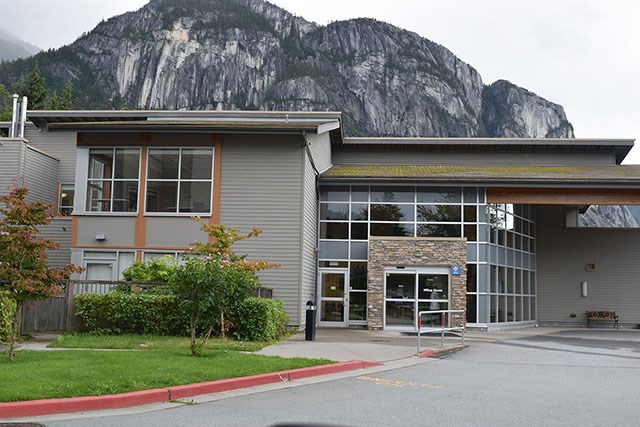Squamish residential care home, Hilltop House, needs to considerably increase staffing and find a way to combat social isolation, according to a survey of a provincial report by the Office of the Seniors Advocate.
The survey targeted 22,000 people in over 292 subsidized facilities, including family members. Though provincial averages were released in September, specifics for each home came out on Friday.
“The bathing is distinctly worse than the provincial average,” said Isobel Mackenzie, the Canadian seniors’ advocate, noting that staff response time at Hilltop House was also lower.
Bathing ranked the highest negative provincewide with residents reporting they wanted more autonomy than they are experiencing, said Mackenzie.
“There is no such thing as the best or worst facility in the province,” she added. “The big picture takeaways are that residents want a bath or shower more often, need help eating and getting to the bathroom and they want people to talk with and value them.”
Hilltop House residents scored lower than provincial results on getting the food they want and help to eat.
The home also rated lower than average on accessing services, getting help right away if needed, staff paying attention to residents and residents feeling as though a member of staff was their friend.
Mackenzie said Hilltop House had fewer people on anti-psychotic drugs than the average but saw a higher use of daily restraints. The home scored well in consultation about medication but more than the average said they didn’t know what their medications were for.
Twenty-five per cent of Hilltop House respondents answered “never” when asked about staff trying to understand feelings versus the provincial average of eight per cent.
There was some good news for Hilltop in the survey. Hilltop House saw zero falls, injuries and missing or wandering persons — less than the provincial average.
Mackenzie said two distinct messages came from the survey: More staff are needed for more services and residents are socially isolated.
“All the facility staff in the world isn’t going to work if residents continue to feel isolated within their own home because they don’t feel like their opinions are valued,” she said.
The province needs to get care levels up first, then ensure care reflects the cognitive abilities that residents still have, Mackenzie added. Part of the problem is that residents with a range of impairment share facilities and activities, therefore “it cannot be meaningful activities for all those people.”
The province committed 3.36 hours per resident of funding for additional care hours last March, said Mackenzie, which is a critical step.
We need a more robust regulatory framework, she explained, referencing Ontario regulating an increase of four hours a day per person.
Hilltop House sees 3.09 funded hours of care, which is above average, said Mackenzie, but is not what it should be. It is funded by the provincial authority, Vancouver Coastal Health.
A spokesperson for VCH said they are aware of the issues identified in the survey. “We are addressing these issues through a number of projects and initiatives, including increasing hours of care and our Residential Care Rejuvenation Project, which will see nearly 1,000 beds replaced in new or significantly renovated residential care facilities over the next four years.”
Mackenzie said it is important to ensure that money meant for staffing is being directed to staffing. She noted dollars are accounted for, but how services are delivered is not. For example, if a staff member takes vacation then they need to be replaced.
“I would disagree that we don’t know where the dollars are going for staffing,” said Daniel Fontaine, the CEO of B.C. Care Providers Association, which represents private and public senior care home providers, adding residential care is one of the most regulated provincial sectors.
However, Fontaine agrees that there are significant issues around social isolation. “Research shows it is the equivalent of smoking 15 cigarettes a day to your health when you are isolated.”
The province announced the investment of $500 million, which should roll out soon, said Fontaine, adding the plan is to hire 1,500 new staff over the next few years and they’re discussing strategies with the province.
This will help provide increased access for seniors in care, Fontaine said.
*Please note, this story has been corrected to make clear BC Care Providers Association represents both private and publicly-subsidized seniors care providers, not “residents in private and public care” as previously stated.




